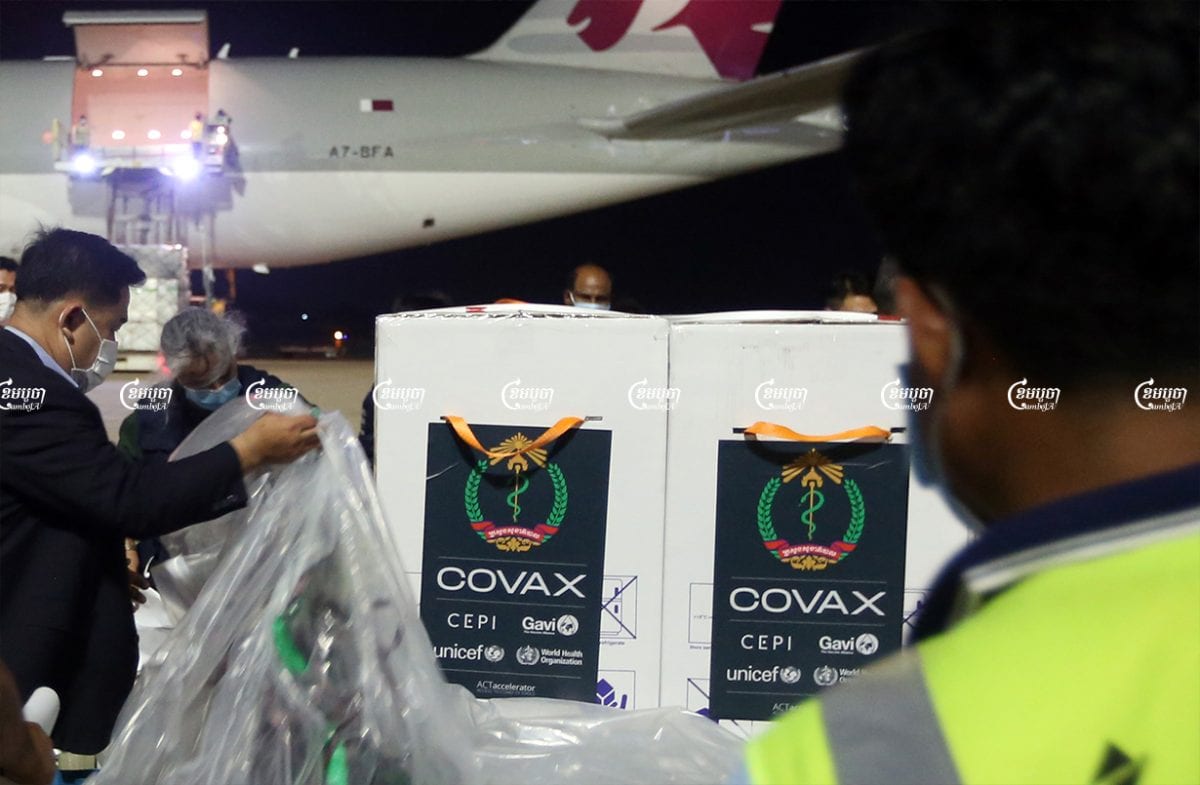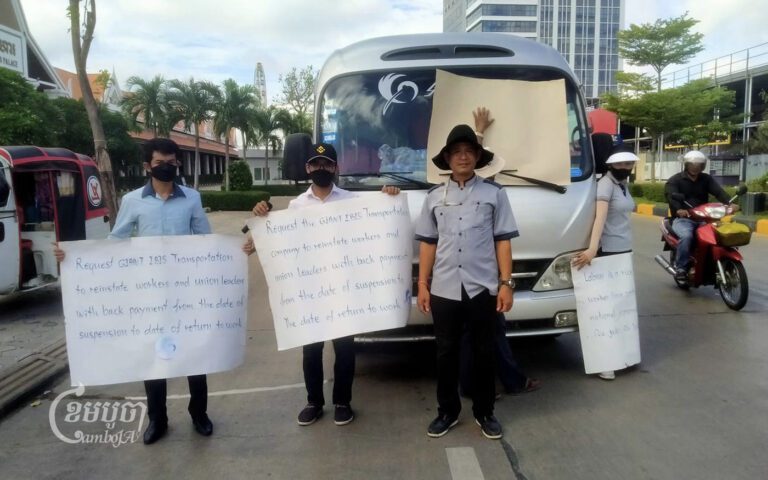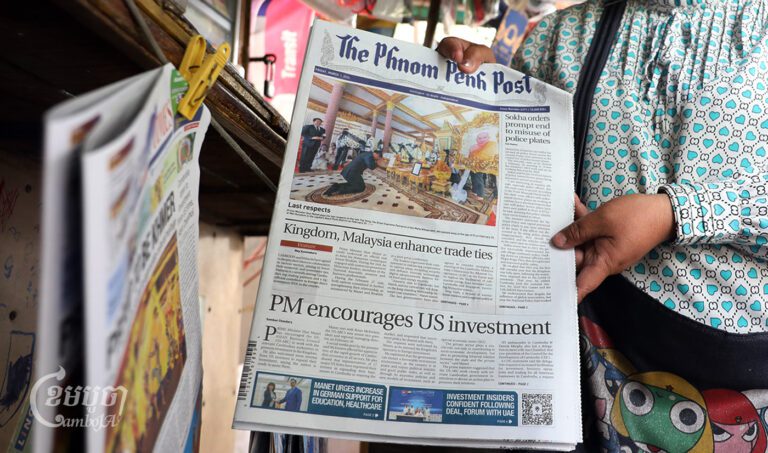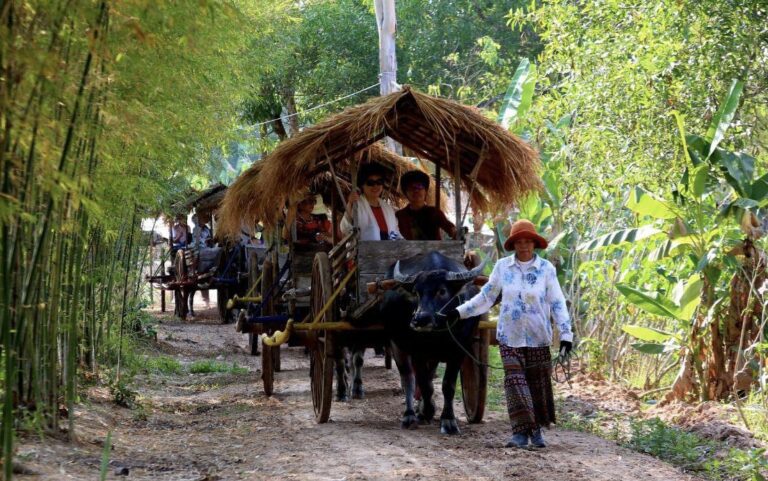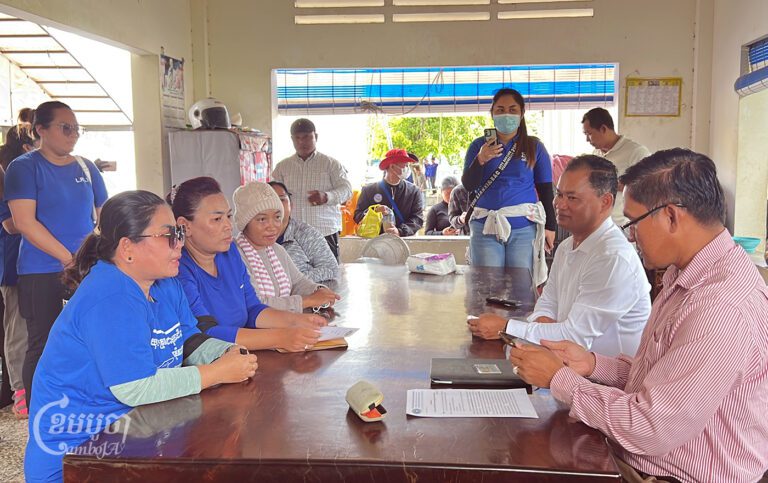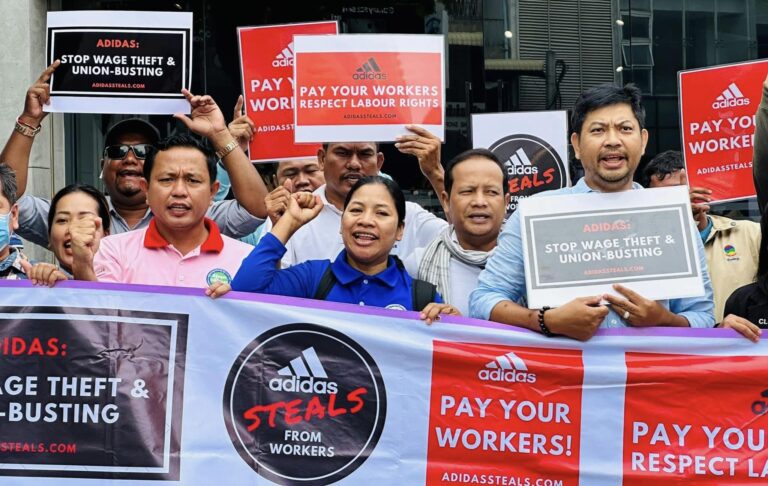While Cambodia’s national vaccination campaign has so far relied almost entirely on Chinese-made vaccines, a new injection of Japanese support may start to diversify the batch.
The Japanese government on Tuesday announced it will donate 1 million doses of AstraZeneca vaccine to Cambodia in a move Japanese representatives describe as being in the “light of the friendship” between the two countries and based on the recipient’s rising case counts.
Japanese Ambassador Mikami Masahiro said in the announcement that the vaccines, which Japan is licensed to produce, will be shipped to Phnom Penh as soon as a logistics arrangement through the global COVAX vaccine procurement initiative is completed.
“I hope that this donation will support the Royal Government of Cambodia’s efforts to defeat COVID-19 as well as help to relieve some of the anxieties of the Cambodian people,” he stated.
According to the announcement, the Japanese government has so far provided a total of more than $50 million worth of pandemic assistance to Cambodia, including medical equipment, hospital renovations and equipment to properly carry and store vaccines. Japanese officials have also provided support through international organizations for infection prevention measures at the borders, as well as a loan of approximately $227 million, which is being used to provide cash benefits to people affected by COVID-19 and to strengthen the medical care provision system.
“In our fight against the global issue of COVID-19, Japan would like to continue to cooperate and work together with our important friend, Cambodia,” Mikami stated.
Health Ministry spokesperson Or Vandine said that the donation shows Japan’s support for and “good cooperation” with the Cambodian government in combating the spread of COVID-19.
“The vaccines not only benefit Cambodians but also foreigners who live in Cambodia and get vaccines free of charge as well,” Vandine said.
The donation also stands to vary the supply of serum that has helped Cambodia achieve one of the highest vaccination rates in ASEAN.
So far, Cambodia has primarily been using Chinese-made vaccines, Sinovac and Sinopharm. While the COVAX initiative has pledged to deliver 7 million doses of AstraZeneca vaccine to Cambodia, the country has only received 324,000 doses as of yet.
Prime Minister Hun Sen said on July 1 that Cambodia is depending on China while other sources of serum have yet to deliver. He pointed out that most of the 11 million doses of vaccine already sent to Cambodia have come from China.
“We rely on China for our vaccination strategy,” the prime minister said. “If I [wait for other sources of the vaccine], we will not have vaccines for people. If we did not have China as a friend, we could not have vaccinated four million people so far. And my decision is right, [we don’t care] who wants to say whatever they want.”
Counting the 11 million doses, Hun Sen said Cambodia will receive 20 million doses of the vaccine from China alone by the end of this summer, with 5 million doses expected to arrive in July plus an additional 4 million in August. Given that it takes two shots to achieve immunization, this should be enough to vaccinate a total of 10 million people.
Vandine said that so far, China has donated 2,200,000 doses of Sinopharm vaccines and the rest, including Sinovac, have been purchased by the Cambodian government. Thus far, the country has vaccinated more than 5 million people.
As the pandemic grinds on, vaccine provision has emerged as a tool of diplomacy.
Political analyst Meas Ny told CamboJA that, while he recognizes the importance of the Chinese vaccines, he believes Cambodia should be able to diversify its international connections.
“I do not think that Cambodia should rely only on China, because Cambodia should be able to ask for assistance from other foreign partners,” he said.
Ny noted the government drew closer to China as its domestic popularity fell into decline.
“The ruling party’s popularity plummeted after the 2013 and 2017 elections, when the government began to shift its stance on relations with the West, becoming closer to China and leading the country away from the path of democracy,” he said.
Even still, vaccine support from other partners has not materialized in the same way as that from China.
Previously, Australia promised to donate 3 million doses of the vaccine. Hun Sen has also asked for 4 million doses from the US, though it’s still unclear if and when that would come through.
Vandine said so far, Cambodia has not yet received any information from the Australians on COVID-19 vaccine procurement. The spokesperson for the Australian embassy in Phnom Penh told CamboJA by email that Australia is providing $28 million to support the rollout of safe and effective vaccinations in Cambodia.
“The package is supporting the Royal Government of Cambodia to distribute and administer vaccines, to monitor the safety and efficacy of vaccinations and to ensure Cambodians have access to clear information about the vaccination process,” the spokesman said, though he didn’t say specifically when or how this was being done.
He added that Australia will also provide $50 million in development assistance this year as part of the Cambodia-Australia COVID-19 Development Response Plan, which launched in December 2020.
Meanwhile, as foreign relations continue to play out, health workers in Cambodia continue to drive the vaccination campaign across the country.
The Health Ministry ended its inoculation campaign in Phnom Penh last week as officials began delivering vaccines throughout the provinces. Health authorities have pledged to vaccinate 10 million people by the end of this year.
Voeung Bunreth, director of the Battambang provincial Health Department, said health workers have started inoculations there and vaccinated 900 people on Monday. He said the campaign will take one month to vaccinate 100,000 people in the province.
Bunreth said as of Monday, Battambang province has recorded more than 1,000 cases of COVID-19 resulting in 11 deaths.
Vei Samnang, governor of Kampong Speu province, said health workers there have already vaccinated more than 290,000 people. Samnang told CamboJA that his province has officially recorded 3,232 cases and 72 deaths.
“Now we are providing a second dose to vulnerable groups of people such as factory workers and vendors at the market,” he said.
On Tuesday, national health officials recorded 838 new cases of COVID-19 and 28 deaths, raising those total amounts to 6,2700 and 953, respectively, since the pandemic began in early 2020. (Additional reporting by Sam Sopich)


